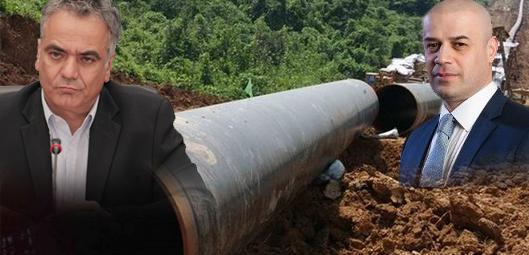Though the Azeri energy company Socar has cut off all communication with Greek officials for the completion of the DESFA (Natural Gas Operator) sale since July – when Greek Parliament ratified an amendment severely limiting the operator’s capacity for network usage hikes and, therefore, revenue potential – Socar continues to consider the agreement open, according to sources.
Socar, sources have informed, is waiting for proposals from Greece’s energy ministry, which could unblock the procedure and lead to the finalization of an agreement giving the Azeri company a 66 percent stake in DESFA. Socar, the winning bidder of an international tender in 2013, would then need to surrender 17 percent to a certified European operator, as was demanded at a latter stage of the sale’s procedure by the European Commission.
Socar does not appear willing to take a first step towards reconciliation as it believes the Greek side is responsible for the sale effort’s latest obstacle.
Socar has described the Greek energy ministry’s decision to revise DESFA’s asset base, limiting the operator’s revenue potential, as a unilateral action.
“There has been no communication with Mr. [Panos] Skourletis [Greece’s energy minister] since the day the amendment was ratified in Greek Parliament,” Anar Mammadov, managing director of Socar Energy Greece, has been quoted as telling sources. The Azeri official was called back to Baku late in July, following the DESFA revision, for company discussions on Socar’s next move. Legal action has not been ruled out.
The two sides have until the end of September, when a letter of guarantee submitted by Socar expires following three extensions, to keep the procedure alive. This letter of guarantee was intitially thought to have an end-of-August expiry date.
Skourletis, in comments offered to the Athens News Agency yesterday, noted that the DESFA sale was not one of the privatizations the Syriza-led coalition has committed itself to. DEFSA’s tender was launched by the country’s previous administration.
The energy minister told the agency that his ministry’s DESFA-related revision is within the legal framework and prevents excessive network usage hikes that would have burdened Greek households and, primarily, undermined local industrial production.
“If the prospective investors do not like this, I believe Greek households and businesses do,” Skourletis told the agency.
Given the current positions of both sides, it remains difficult to imagine any Greek proposal that could unblock the sale’s stalemate situation. As is widely believed, both sides could be playing for time, all the way through to the letter of gurantee’s expiry date at the end of September, so as to avoid being held responsible for the sale’s failure.
Socar has been legally entitled to a repercussion-free withdrawal from the DESFA deal since last year, when 24 months elapsed following the tender’s completion.
It is believed that Italy’s Snam, a prime candidate for the 17 percent share of DESFA which Socar would need to surrender, could be interested in acquiring a minority DESFA stake of around 31 percent as part of an agreement that would give the Greek State a majority share, similar to the sale now being attempted for IPTO, the power grid operator. However, Socar would need to offer its consent. Otherwise, a new tender must be launched.





